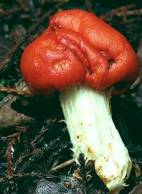Manaaki Whenua - Landcare Research
New Zealand's foremost environmental research organisation.
Beaver eradication on Tierra del Fuego

North American beavers were introduced to the island of Tierra del Fuego in 1946 to start a fur industry. However, the introduction has largely been a disaster with the beavers spreading large distances and even swimming the Straits of Magellan to mainland South America. They destroy riparian beech forests, damage roads and are a nuisance to farmers and foresters.
Beavers now occupy about 7 million hectares of southern beech forest, Patagonian steppe and Andean high altitude bogs and in total about 26,000km of waterways. Now, an international team led by John Parkes from Landcare Research has been asked to assess options to manage beavers and whether they could be eradicated from South America.
More: Kararere Kino Issue 12 »Topical IssuescarboNZero wins award |
Media releases
|
Science in Focus - Biosystematics

The Biosystematics Team brings together over 40 science staff researching New Zealand's most diverse groups of life on land and in freshwater. Research addresses our native and introduced plants, insects and other arthropods, fungi, and plant–associated bacteria, to describe New Zealand's biodiversity and species interrelationships and to make that information readily accessible. Currently, less than 50% of New Zealand's estimated total biodiversity in these groups has been recorded. Research is supported by Landcare Research's five national and international collections of these organisms, along with specialised databases and libraries. The biological collections also hold voucher specimens that authenticate biological studies in diverse branches of science. Biosystematists link with colleagues in ecology, conservation, genetics, weed and pest control, plant pathology, bioprospecting, and biosecurity to provide authoritative names and specimen–linked information integral to the applied sciences. Increasingly, species identification and determination of species relationships involves DNA analyses in addition to morphological and biochemical approaches. Holdings of the national collections are a key source of DNA for these studies.
Read more »
